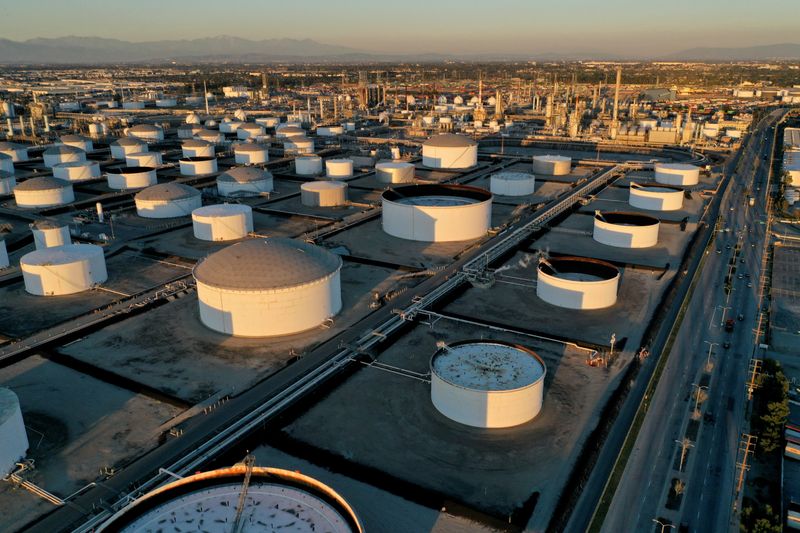By Arathy Somasekhar
HOUSTON(Reuters) - Price differences between U.S. light and heavy crude oil grades have been widening, pricing data showed, as refiners around the world have been snapping up less-dense crude grades for more gasoline production.
As summer begins, sky-high demand and profits from motor fuels production has encouraged global refiners to buy lighter barrels. Since Russia's invasion of Ukraine, more Russian Urals crude has been moving to Asia as more U.S. light-sweet heads to Europe.
Those changes, combined with ultra high prices for natural gas used in refining, have favored, easier-to-process lighter grades. Prices for U.S. natural gas have more than doubled this year.
Gasoline-friendly light sweet WTI Midland priced at East Houston, called MEH, has averaged a $1.40 per barrel premium to U.S. West Texas Intermediate (WTI), compared with a 96-cent premium in the year-ago period, as exports to Europe climbed.
The spread between Midland and heavy Western Canadian Select (WCS), priced in Houston, widened to about $12 a barrel by late May from around $8 at the start of April, data from consultancy RBN Energy showed.
WCS prices also were affected by maintenance at Suncor Energy (NYSE:SU)'s Syncrude operations, which coverts oil sands to exportable grades, analysts said.
Price differentials widen between WCS and WTI at Houston https://graphics.reuters.com/USA-OIL/PRICING/dwvkrnnrepm/chart.png
Differentials between Light Louisiana Sweet and medium sour Mars crude, both priced in Louisiana, also widened by more than $2 to $6.8 in the same period, according to Refinitiv Eikon data.
Mars has been trading at heavy discounts to match cut-rate prices for competing Russian Urals grades in export markets as China and India, among the world's top oil consumers, have been snapping up discounted Russian barrels.

Mars also has faced competition in the U.S. from similar quality sour barrels released from the Strategic Petroleum Reserve.
"I would expect heavy/light differentials to correct a little bit and narrow somewhat, though remain wider than they were in early April," RBN Energy analyst Robert Auers said.